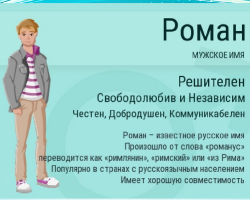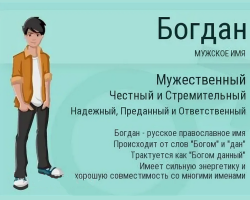Hepatitis is a serious viral disease. It can be manifested by many unpleasant symptoms, or maybe in the human body for several years, allowing only a complete damage to the liver at one moment. Hepatitis requires treatment and prevention.
Content
- Symptoms of hepatitis A in adults, how is the disease manifested in adults?
- Symptoms of hepatitis B in adults, how does the disease occur?
- Symptoms of hepatitis C in adults, how does the disease occur?
- Hepatitis during pregnancy: the consequences of a woman's disease in a position
- How is hepatitis A and B transmitted? Ways to transfer the virus
- How is hepatitis "C" transmitted? Ways to transmit the disease
- Is hepatitis A, B, s treatment? How is treatment carried out?
- Is it vaccinated against hepatitis A, B, with adults?
- Hepatitis vaccination for adults, side effects
- Indications and contraindications for adults from hepatitis and children
- Hepatitis revaccination in adults, why is it needed?
- Video: "Hepatitis a - symptoms of cause and treatment"
Symptoms of hepatitis A in adults, how is the disease manifested in adults?
- Hepatitis “A” is perhaps the most popular liver disease, which is viral. Its difference is only that when detected with it, it is enough just to cope because it is the easiest form and the consequences of a person, it does not bring any negative
- A feature of this hepatitis is the very stability of the virus to various alkaline and acid conditions. For this reason, infection most often occurs through dirty and “sick” water or not high -quality spoiled and infected food
- It is not surprising that this disease is quite common in countries where people are not used to observing sanitary conditions. The so -called "third world countries": Bangladesh, India, Africa and so on

Methods of transferring the virus:
- Most often with hepatitis A people are infected during travel with non -compliance with minimal sanitary standards: washing hands, washing food, consumption of low -quality water, nutrition in dirty public institutions
- Drinking tap water is strictly prohibited, so even in normal home conditions, water from a crane is a source of the virus
- Fruits and vegetables that are purchased on the market and in supermarkets can also be carriers of the disease, so they must always be thoroughly washed with running warm water
- The causative agent is hidden in products of sea and river origin. All these food products need to be treated with temperatures without fail

How a person is infected:
- The virus enters the digestive system with food, where even increased acidity is not a hindrance for it
- Blood spreads it throughout the body and thus allows it to be in every body cell
- It is in the liver that the virus itself multiplies from which the liver suffers inflammation
- As a result of the fact that the entire immune system is actively fighting with the destruction of the virus, the liver is weakened and insufficiency occurs

Symptoms:
- similar to those that are characteristic of any inflammatory disease
- fever, possibly feverish state
- the temperature cannot be shot down for a long time
- the muscles respond with pain
- the body feels poisoning (intoxication)
- nausea
- vomit
- chills
- malaise
- lack of appetite
- weakness
- liver pain
All symptoms are present at the same time or occur in increasing, but the liver pain is present in each case.
It is simply impossible to determine exactly the disease on the “first pairs” and doctors make an accurate diagnosis only when the patient’s urine acquires a dark brown color, and feces are white. But in a series with this symptom, the patient feels relief, as a rule, the temperature can decline and vomiting disappear along with nausea.
The adult hepatitis A is distinguished by the fact that all the symptoms pass quite softly and sometimes not even noticeable. The disease proceeds by itself without complications.
Symptoms of hepatitis B in adults, how does the disease occur?
Hepatitis with brand “B” is a serious viral disease that can be transmitted from person to person and the most serious consequence of such hepatitis is the damage to the liver. In particular, this virus is the main and most common cause of cirrhosis - liver cancer, severe and incurable disease.
It is known that this disease exists in its two forms and can be:
- sharp - suddenly arising
- chronic - consequences, the occurrence of acute hepatitis

Acute hepatitis -a disease that occurs with pronounced symptoms: temperature, chills, liver pain, vomiting, nausea. Fortunately, most of the patients (namely more than 90%) are safely cured of this disease and only about 10%-7%gain a chronic form. But this applies only to an adult, if the virus affects the newborn, then the situation is exactly the opposite - only 10% of the baby can cope with this disease safely and not find a chronic form.
Chronic hepatitisit may be a complication of an acute disease, or maybe just for a long time is in the body of a person who does not suspect this. The virus is able not to manifest itself for a long time and destroy the body from the inside. Symptoms may be present, or may appear when the disease takes a serious form. In cases where people do not suspect this disease, the virus can develop rapidly and can go into cirrhosis in a short time.
Cirrhosis of the liver - The frequent consequence of transferred hepatitis B. This disease is characterized by a violation of the structure of the internal organ, the formation of scar tissue on it, and a violation of the liver. Cirrhosis also occurs for other reasons, in case of intoxication of the organ with alcoholic and medicinal substances.

The difference between this virus is that it is poorly susceptible to environmental conditions:
- for a long time persists in room temperature (up to three months)
- if the virus is frozen, it is able to hold its existence in such an environment under twenty years
- the virus is able to withstand boiling, which lasts no more than an hour
- the virus is quite resistant to chlorine and can exist in it for up to two hours
- formaline solution is also not a strong obstacle to the virus and allows it to live in his environment up to seven days
- in a solution of ethyl alcohol (in 80%), the virus does not die immediately, but in two minutes
Ways of infection with hepatitis B viros:
- the virus is able to be stored in all biological fluids of a person: in saliva, in blood, in urine, sperm, vaginal discharge, sweat, tears and feces. The most concentrated amount of virus is contained in the blood and discharge from the human genital organs
- virus infection occurs only when the biological fluid of a sick person concerns an open, affected area of \u200b\u200bthe skin (scratch, wound, cut)
be sure that hepatitis B cannot be infected with:
- cough
- sneezing
- hands shake
- friendly kiss
- hugs
- during the general meal
- during breastfeeding (if the integrity of the nipples of the mother and oral cavity of the baby is not broken)
Once in the liver, the virus does not affect it, the body tries to develop protection and affects the cells in which the virus is located. It is this process that leads to inflammation of the liver.
It is possible that the first two weeks a person may not feel not pleasant symptoms at all. And only after this time he notices:
- lack of appetite
- lethargy
- nausea
- fatigue
- vomiting
- fever and fever
- joint pain
- muscle pain
- migraine
- cough
- sore throat
- runny nose
These symptoms are characteristic at the initial stage and arise because the human immune system is weakened.
After that, other very eloquent symptoms come:
- yellowing of the skin
- yellowing of eye apples
- yellowing of the mucous membrane of the mouth
- darkening of urine
- clals
- liver pain
With the beginning of the treatment of the disease, it passes completely only after more than three months, a third of patients can feel symptoms much longer.
Symptoms of hepatitis C in adults, how does the disease occur?
Hepatitis C is an infectious disease that affects mainly the liver. The symptom in all hepatitis brands are almost the same, the brand “C” differs in that the virus is able to be in the human body for up to several years, not giving any signs and only after a while manifests itself in the last stage - cirrhosis of the liver.
Most often, the first signs of the disease appear only a month or two after infection with the virus, however, cases are not rare when this virus kept in the human body asymptomatic up to 180 days.
The symptoms of this disease are manifested in:
- Fatigue
- weakness
- drowsiness
- apathy and unwillingness to work
- nausea
- vomiting
- lack of appetite
- constantly belching
- bitterness in the mouth
- abdominal pain to the right
- discomfort in the right side of the abdomen
- dark urine
- svetla Kale
- joint pain
- fever
- lomatya in the body
After a while, you can notice characteristic changes:
- yellowing of the eyeball
- yellowing of the skin in different parts of the body
As a rule, the disease is diagnosed only when a person begins to feel problems with the liver. It is noted that men suffer from this disease much more often because they are able to consume more alcohol than women, which significantly worsens the work of an already weakened and affected liver.

The main specific symptoms of hepatitis C are all that can be associated with the intoxication (poisoning) of the body:
- migraines and weakness
- disruption of digestive function
- decreased performance, lethargy, weakness
- abdominal pain, especially on the right
- itching on the skin (most often on the palms, around the mouth, ears, on the legs)
- changing the indicators in the blood test
A more detailed examination and ultrasound makes it clear that the liver is covered with frequent fibrosis, it is possible to observe even an increase in the abdomen on the right side. The patient is covered with a tangible capillary mesh, the hormonal background of a person is not stable, the weight can quickly leave.
Hepatitis during pregnancy: the consequences of a woman's disease in a position
Over the entire period of pregnancy, a woman passes a blood test several times to exclude the presence of a hepatitis virus in her brand “A”, “B”, “C” and others. If this disease is detected, then the path to an ordinary stationary maternity hospital is contraindicated in it. Hepatitis is a viral and infectious disease, which has many unpleasant consequences and is transmitted by infected blood.
Be sure to know that the hepatitis virus has several varieties that are marked with letters. However, the estate in its life of one virus of them does not limit a person from infection with others.
Moreover, it is important to know that some people and some types of virus are able to gain a chronic form, that is, sick once - to suffer a disease all their lives.
The virus affects the liver in the human body and slowly leads it to the fact that it gains cirrhosis. However, one of the viruses is still possible to prevent-this is hepatitis, from which they are increasingly vaccinated.
Of course, childbirth is the direct path of transferring the virus to his newborn child, but if the doctor is experienced, and the conduct of pregnancy is attentive and competent, it is quite possible to avoid infection of the child.

The hepatitis virus is, in other words, inflammation of the liver, which in the worst case leads to cancer of the liver. Due to the fact that this organ is amazed, several aspects in the human body suffer:
- the immune system
- hormonal background
- metabolism
The general symptom for each brand of the disease is yellowing of the skin as a result of insufficient functioning of the liver and the development of enzymes necessary for the body. In addition, intoxication is necessarily present - poisoning of the body and a number of related symptoms.
Since the liver suffers - one of the main internal organs, it is not rarely possible to feel pain in the right hypochondrium and even bloating of this part of the body. The pain can be completely diverse: from stabbing, to cutting, changing aching. This disease is not rarely called “insidious” because for a long time it is generally capable of passing asymptomatic and not making itself felt.
Hepatitis lives perfectly in the environment, food and water and therefore can easily get into the body through any object to which an infected person had contact.

Various types of hepatitis during pregnancy:
- “A” - is often called “jaundice” and even “illness of dirty hands”. This disease is often tolerated in childhood only because children do not yet know certain measures of hygiene and precautions. This is the easiest type of hepatitis that a pregnant woman can become infected. Most often it is treated safely and does not affect the outcome of events
- “B” - comes from blood poisoning, a woman can catch such a virus in a manicure salon, from a dentist, from a razor and a syringe, from a toothbrush on which someone else's blood fell. In order to avoid this, each woman in a position must be responsible for the choice of clinics and monitor complete disinfection. Such hepatitis is very difficult to proceed during pregnancy and a fourth part of women gains a chronic form
- “C” slowly destroys the human body at the cellular level, almost always it becomes chronic and mortally affects the liver
Complications after hepatitis infection during pregnancy:
- If the baby did not catch the virus during childbirth, nevertheless, a woman after childbirth requires special observation, because her body weakens and becomes subject to all unpleasant complications
- The liver during pregnancy and hepatitis suffers a double and even triple load, its work is disturbed and it is not capable of developing the due number of enzymes necessary for the baby in development
- If a pregnant woman is detected by hepatitis, then natural birth is contraindicated to her to avoid infection of the child. For this reason, she is assigned a cesarean section

Hepatitis treatment in women in position:
- It is important to know that if the disease has gained acute form, then it is simply impossible to cure and destroy the pathogenic virus
- During pregnancy, when a virus is detected, all attention should be paid only to the immune system, which should independently fight the disease
- You can help the immune system only by supporting it in all sorts of ways. It is for this reason that it is necessary to prevent dehydration in any case, monitor your well -being and control the work of the rest of the internal organs
- It is impossible to help yourself during hepatitis, so you should definitely go to the clinic where the necessary stationary treatment is prescribed
How is hepatitis A and B transmitted? Ways to transfer the virus
As mentioned earlier, the hepatitis virus (any) is very stable to various environmental factors and lives in the biological fluid of an infected person.

How is the virus of this disease transmitted in everyday life:
- during blood transfusion, if not sufficient analysis of this biological fluid was carried out
- during the reusable use of a disposable syringe (most often occurs in drug addicts)
- through surgical tools that have undergone insufficient sanitary treatment
- in the dentistry office, if the tools are not sufficiently sterilized
- in the salons of tattoos when using one needle for different people
- in manicure salons, where tools undergo insufficient processing
- in sexual contact: ordinary sex, oral and anal (and not traditional types of sex give a big probability of infection)
- during childbirth: from a sick mother to a child, when the tissues of two are affected and biological fluids are in contact
- when using different people with one toothbrush and a razor
The sweat and saliva contains a minimum concentration of the virus and therefore, infected through a kiss or towel is unlikely. However, the risk grows if there are blood impurities in the saliva, and you press a fresh wound with a dirty towel.
How is hepatitis "C" transmitted? Ways to transmit the disease
This disease can be infected if the blood of an infected person somehow enters the body of a healthy person. This can happen if:
- a person uses a disposable syringe several times (when using drugs that are injected into the veins)
- if the mother is sick during childbirth, through the maternity tracks she passes the virus to the child
- through cosmetic, medical and surgical instruments that do not receive proper processing
- through not protected, and sometimes protected sexual intercourse
- in everyday life, if the patient's blood enters the mucous membrane of a healthy person

Is hepatitis A, B, s treatment? How is treatment carried out?
Hepatitis A treatment:
- As mentioned earlier, hepatitis “A” is the safest only because it proceeds softer, and does not leave the consequences. Hepatitis of this marking usually passes by itself without requiring any serious measures
- Observation of patients, as a rule, takes place in hospital conditions. People infected with hepatitis A need compulsory bed rest, special diet and drugs that protect the liver
- To protect yourself from the disease, you should regularly observe hygiene measures, you can also vaccinate
Hepatitis B treatment:
- This type of hepatitis is more serious and therefore requires a special approach and complex treatment. Treatment depends only on what stage the disease was found
- For the treatment of “B” hepatitis, immunostimulants, hormonal drugs and a number of important necessary antibiotics are mainly used
- There is 100% prevention from this type of disease - vaccination, which is carried out in the first year of the life of a newborn child, but a sufficient amount of time after vaccination should take place so that immunity is developed for the disease - about seven years

Hepatitis C Treatment:
- The worst feature of this disease is that for many years it does not make itself felt and only when the disease finally affects the liver - hepatitis C makes itself felt
- If hepatitis C is detected at the initial stage, then the patient should regularly check the work of his internal organs, carry out therapy aimed at destroying viruses
- Drugs that are administered to the patient for treatment have an antitumor effect and try to destroy the virus at the same time
Hepatitis in no case tolerates independent treatment or personal choice of any of the drugs, because what is suitable for one person does not suit another. If you carry out a number of wrong actions, then it is quite possible to finish off a negative reaction and even more development of the disease. Traditional treatment can significantly improve well -being and destroy the virus.
Is it vaccinated against hepatitis A, B, with adults?
Hepatitis is a serious disease that, depending on its specifics, is divided into several types. Each of these species is more dangerous than the other and in order to protect yourself this disease, vaccination was carried out.
It is possible to get hepatitis at any age, because it is not at all difficult to do it - there is enough contact with any biological fluid of an infected person. Moreover, the virus lives in this liquid (outside the body) to two weeks. It is for this reason that it is safe to say that adults are needed in the same way as children.
Many are afraid of this vaccination, believing that the virus itself is introduced to them, but this is completely not so. During vaccination, a protein is introduced, which does not provide a person with any danger and he cannot infect hepatitis. Depending on the manufacturer, several effective drugs are allocated.
In order for vaccination to be effective in the hip muscle. If the substance is administered along the skin, vaccination can be considered not valid.

It is customary to make vaccination from hepatitis A and B, vaccination from C is not carried out for the reason that the virus is constantly modified.
Hepatitis vaccination for adults, side effects
There are certain contraindications for vaccination:
- human allergy to yeast
- during a cold or infectious disease, it is prohibited to make vaccination
- if body temperature is increased
- you can not do vaccination during lactation and pregnancy
- after the transfer of meningitis
- in the presence of the disease itself
It is worth noting that side effects after vaccination in adults over eighteen years old are rare.
The list of complications includes:
- hives
- anaphylactic shock
- rash
- allergic reaction
- multiple sclerosis

Indications and contraindications for adults from hepatitis and children
Hepatitis vaccination is considered a national health program. All newborn children and adults who are in a kind of risk group are subject to her. Vaccination is needed only to protect a person from infection and prevent the spread of the virus.
A person can become infected with a virus through:
- contact of the open section of the wound with any biological fluid of an infected person: blood, saliva, tears, sweat
- violation of the integrity of the skin with an infected object
- blood transfusion
Especially the infection is subject to:
- people who live in hygienic and non -prosperous conditions
- people whose families have chronic hepatitis
- children who live in boarding schools
- people with hemodialysis
- people with a large number of sexual partners
- people of non -traditional orientation
- drug addicts

In a series with readings for vaccination, there are certain contraindications:
- allergic reaction in humans to any component of the drug
- vaccination during a cold and flu during a cold
- vaccination during pregnancy and during feeding
- the presence of hepatitis - such vaccination will be completely useless
Hepatitis revaccination in adults, why is it needed?
Nowadays, revaccination is a way to protect yourself from the disease. Of course, in childhood, a person is being vaccinated against hepatitis A and B, but in adulthood, the need for it appears more and more. This is because the virus constantly mutates and the human ability decades after the first vaccination in adulthood is much higher than that of a child
Most often, people are infected with hepatitis only because they believe that they do not need this vaccination at all. Having vaccinated once, it will not produce antibodies forever and sooner or later its action will still end. In addition to the fact that the risk of the disease is enhanced with age, it is quite difficult to transfer all complications at this stage.

In childhood, of course, hepatitis is quite real. The child is in contact with other children at school and kindergarten. But an adult does not lose this opportunity, visiting medical institutions, beauty salons and other establishments.







